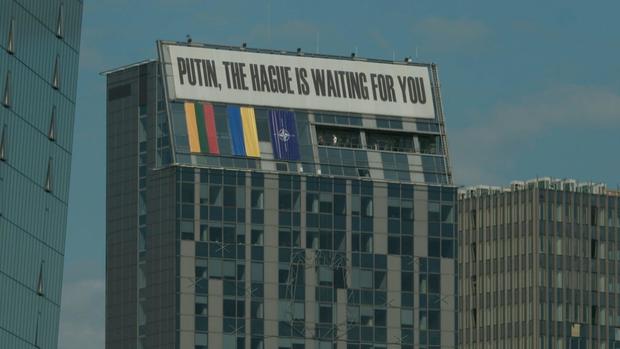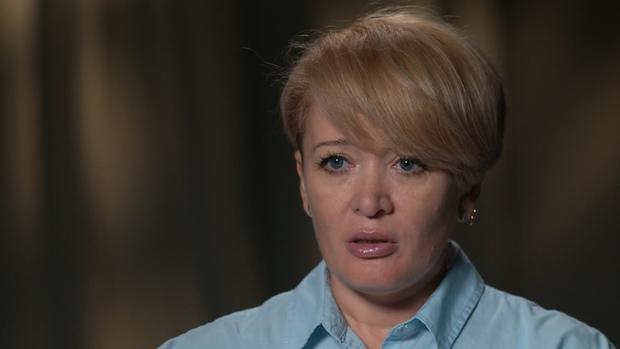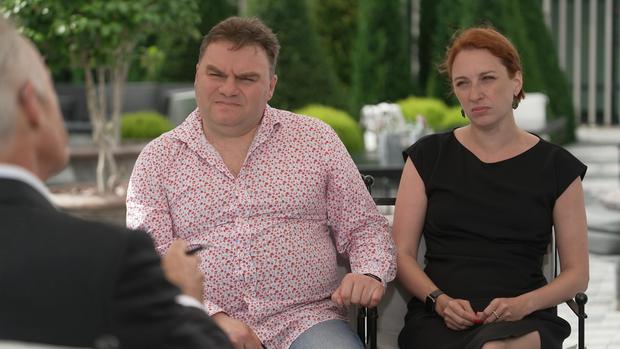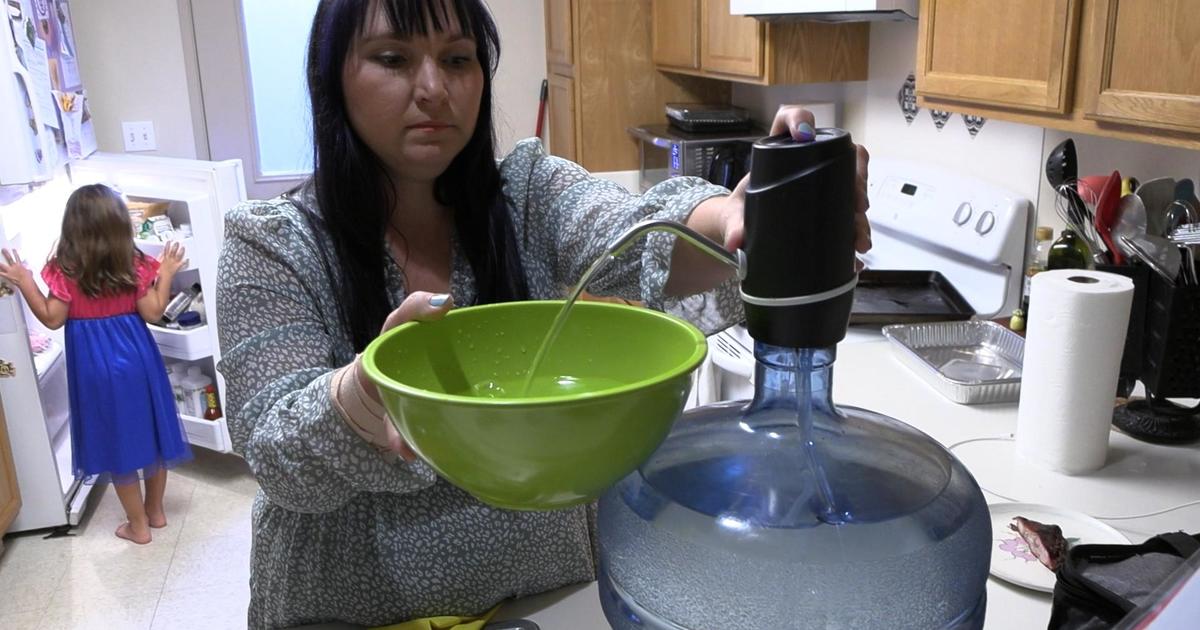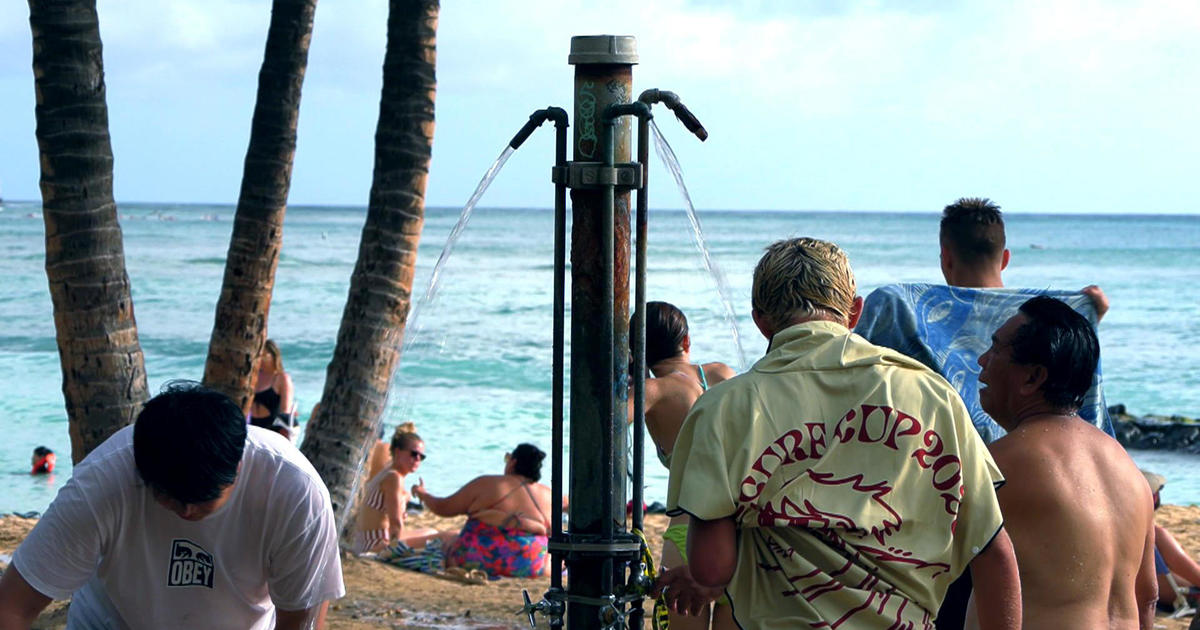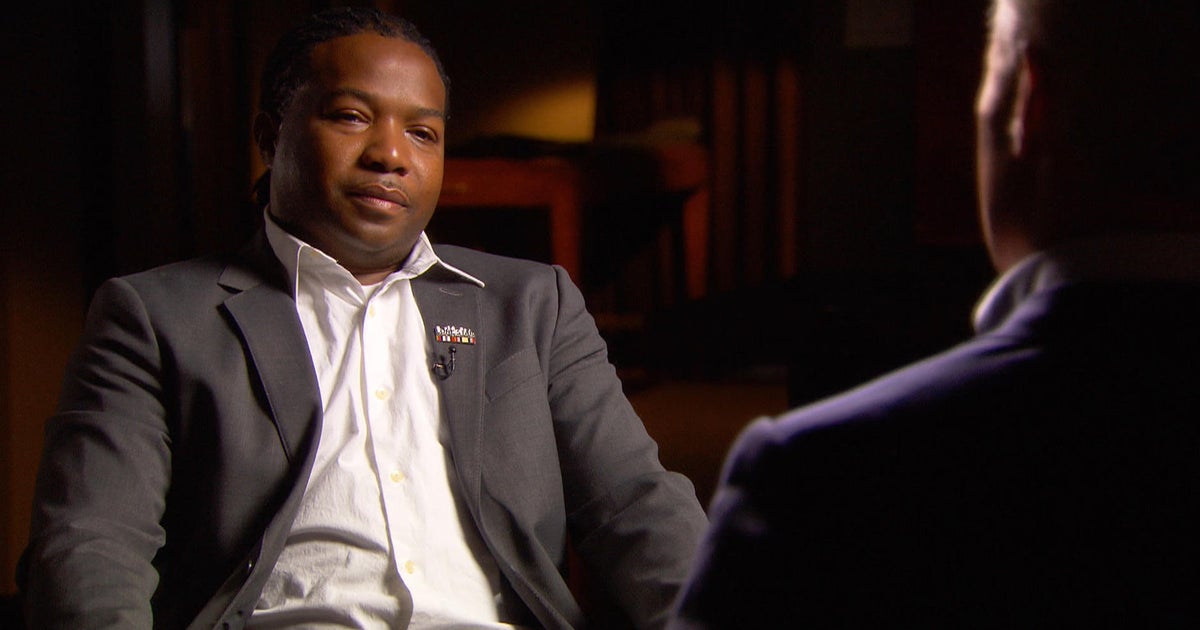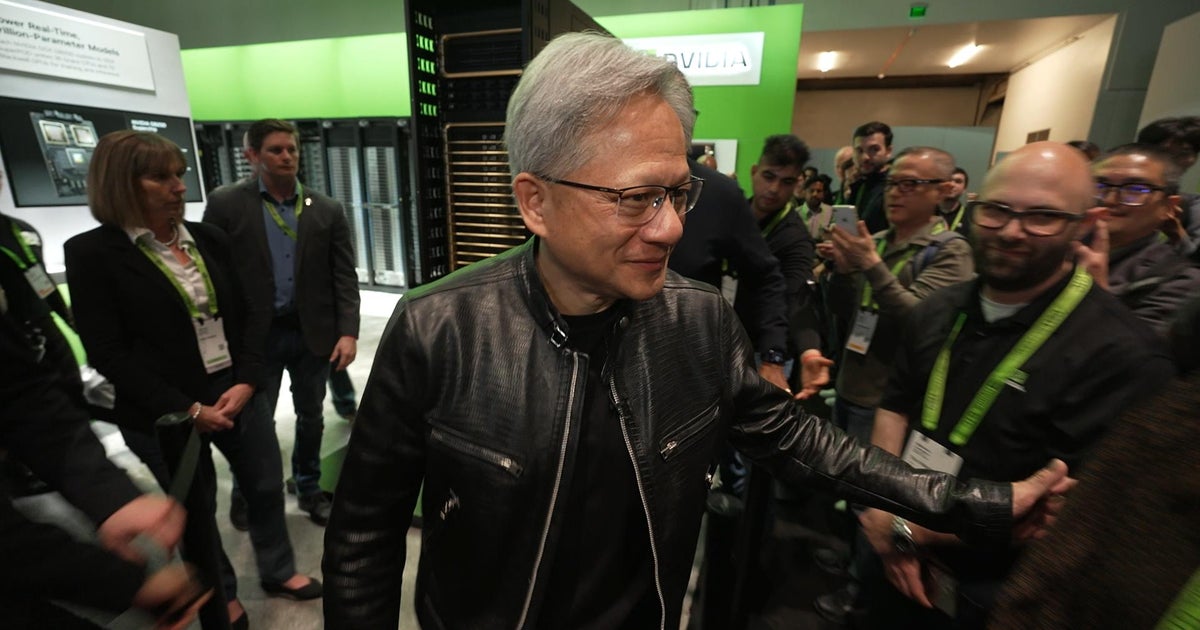Where Russians go after speaking out against Vladimir Putin
Sergei Davidis knows very well the risks involved in trying to promote human rights in Vladimir Putin's Russia.
Davidis works for Memorial, a human rights organization banned by the Russian government that received the Nobel Peace Prize in 2022. That same year Davidis escaped to Lithuania, two days after testifying on behalf of Alexey Navalny, Putin's leading political opponent. Davidis continues to head Memorial's project to support political prisoners.
Memorial has documented that there are 680 political prisoners in Russia today, but Davidis believes the real number is much higher. Shortly after Russia launched its invasion of Ukraine in 2022, lawmakers passed a law that imposes 15-year prison sentences for those who criticize the war.
Another human rights group has documented some 20,000 arrests for protesting the war.
"Almost every day there are more and more arrests," Davidis said in Russian. "And apart from the legal side of it, more often than before, there's violence and torture."
Why vocal critics of Putin are living in Lithuania
Russia's presidential election cycle concluded Sunday, but there's no suspense over who will win. Putin, 71, who has ruled for almost a quarter of a century, is almost certain to win a fifth term, which will cover the next six years.
But the election took place amid a heightened climate of oppression against virtually all forms of dissent. Many of Putin's high-profile rivals have died recently: the outspoken mercenary and former Putin ally Yevgeny Prigozhin was killed in a plane explosion; and Alexey Navalny, who died last month in an Arctic prison camp.
Putin has squashed nearly all internal opposition to his unprovoked war in Ukraine. And yet, many courageous Russians continue to criticize him outside the country.
Some live in Vilnius, Lithuania, a city 500 miles west of Moscow that's been thought of as the capital of free Russia. Lithuania, a democracy of around 3 million people, is a NATO ally that has welcomed more than 2,500 Russian political exiles since the start of the war.
The colors of the Ukrainian flag can be seen all around Vilnius. The capital changed the name of the street where the Russian embassy is located to Heroes of Ukraine Street. "Putin, the Hague is waiting for you," is written across the top of a building.
Mantas Adomenas, who served as Lithuania's deputy foreign minister from 2020 until last August, believes Lithuania can accept more Russian dissidents.
"We will accommodate as many as needed to provide them with the possibility to work for the freedom and democracy in Russia," Adomenas said.
Free in Vilnius, wanted in Russia
One of the Russian exiles working for freedom and democracy from Lithuania is crusading mom Anastasia Shevchenko, who fled Putin's regime two years ago.
Shevchenko's daughter Alina, severely disabled from birth, lived in a Russian government nursing home. Shevchenko cared for her much of the time because the Russian nursing facility was short on staff and supplies.
"I was struggling to get medication for my daughter, begging in the pharmacy that she needed it. It was very important for her health," Shevchenko said. "They said, 'No, we just don't have it, because the ministry forgot to order it this month and you need to wait,'" Shevchenko said. "I decided, I'm not going to keep silence. I'm going to stand out and to speak out."
She spoke out through Open Russia, a Russian democracy group. The group was tolerated 10 years ago. Shevchenko organized protests in her hometown, Rostov-on-Don. In 2019, the Kremlin cracked down.
Shevchenko was arrested and a Russian court ordered her into house arrest. She couldn't visit or care for her daughter, who developed pneumonia. By the time a judge granted a pass for Shevchenko to visit the hospital, Alina was unconscious.
She died a short time later.
In 2021, Shevchenko was given a four-year suspended sentence. But when Putin invaded Ukraine in 2022, she decided to flee Russia. From her southern city, she took her two surviving children and the family dog on an 1,100 mile drive from their home in Rostov-on-Don to Vilnius.
After waiting 12 hours at the Belarus-Lithuania border, Shevchenko and her family crossed to freedom. A U.S-based democracy group arranged Lithuanian visas for her family.
Shevchenko is free in Vilnius, but she's wanted in Russia for breaking her probation. These days she streams on YouTube and works to send medicine, food and letters to political prisoners. She has become a voice for other Russians feeling isolated, lonely and living in fear that, like her daughter, they may never escape.
Right now, she sees a Russia based on fakes: a fake democracy, fake news and fake elections.
"And I want to be the opposite," she said. "I want Russia to be open."
How dissidents speak against Putin — despite the Kremlin's control over media
Independent newsrooms in Russia have been forced to close. News outlets controlled by the government only report the absurd lie that the war in Ukraine is self-defense against Nazis.
"One of the consequences of the war was a complete wipe out of independent mass media, prohibition of any opinion that's not under control of the government, any alternative to state propaganda," Davidis said.
Tatyana Felgenhauer and Aleksandr Plyuschev were talk radio hosts on a prominent Moscow station. They were allowed to speak their minds until the day Putin launched his war. Within two weeks, their station was forced to close.
Felgenhauer and Plyuschev are now in Vilnius, streaming daily into Russia on YouTube. Putin silenced Facebook, Instagram and X, formerly known as Twitter, but YouTube may be too popular for the Kremlin to block, at least for now.
"This is the only chance to talk about the war honestly," Felgenhauer said. "Because the propaganda tries to create this feeling that you are completely alone if you are against the war."
Felgenhauer said she would hate herself if she kept silent or pretended that everything was OK.
And while Russian radio and TV stations only repeat Kremlin talking points, a Lithuanian train station took advantage of a captive Russian audience on the rails. The Russian city of Kaliningrad is separated from the rest of the country, like Alaska from the lower 48 in the U.S. So the Moscow-Kaliningrad train must travel through Lithuania.
Russian passengers are not allowed to get off the train, but at one stop in Vilnius they were confronted by posters of atrocities. "Putin is killing civilians in Ukraine. Do you agree with this?" one reads. Passengers were not allowed off the train in part because Lithuania worries about Russian agents.
Are Russian dissidents safe in Lithuania?
Putin is infamous for ordering attacks on his enemies in foreign countries. Adomenas said the safety of Russian dissidents in Lithuania is a major concern. He said Lithuania puts "considerable effort" into making sure dissidents are safe there.
Adomenas said he couldn't confirm if there had been any attempts made at attacking Russian dissidents in Lithuania, but said that Russia is "constantly probing and constantly trying."
And this past week, Russia may have gotten through. Leonid Volkov, an ally of late Russian opposition leader Navalny, was attacked with a hammer near his home in Vilnius. His arm was broken and the attacker fled.
Lithuanian police are investigating but the country's president had a message for Putin: "No one is afraid of you here."
